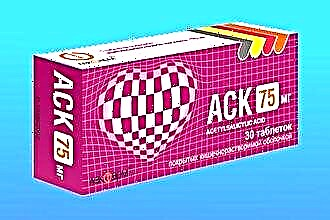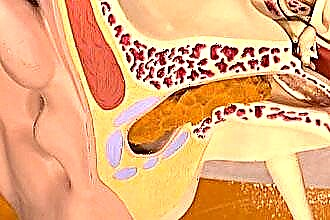Due to the deterioration of the environmental situation, the frequency of the development of allergic rhinitis, in particular, hay fever, in expectant mothers has increased 3 times. The disease is accompanied by severe swelling of the nasopharynx, sneezing, lacrimation and profuse mucus from the nose. It should be understood that allergies negatively affect the health of not only the woman, but also the unborn child. How to treat allergic rhinitis during pregnancy?
 Most traditional antiallergic medications cannot be used during gestation. They contain components that can be absorbed into the bloodstream and provoke abnormal development of the fetus. Only a doctor can draw up the most suitable and safe treatment regimen after examining a woman.
Most traditional antiallergic medications cannot be used during gestation. They contain components that can be absorbed into the bloodstream and provoke abnormal development of the fetus. Only a doctor can draw up the most suitable and safe treatment regimen after examining a woman.
As a rule, the treatment regimen includes saline solutions for rinsing the nose, some types of corticosteroids, decongestants and antihistamines.
Features of therapy
To eliminate allergic rhinitis during pregnancy, you need to accurately determine the type of allergen that caused the unwanted reactions in the body. To do this, the expectant mother must undergo allergic tests and donate blood for laboratory research. The presence of specific antibodies (IgE) in the blood plasma confirms the allergic origin of the common cold. How is allergy treated in women during gestation?
When confirming the diagnosis, the allergist will try to limit the use of antihistamines as much as possible. The fact is that most of them negatively affect the development of the unborn baby. They are used only if the consequences of allergic rhinitis for the expectant mother and child are more devastating than taking medications.
The hardest part to deal with the problem is in the first trimester of pregnancy. Doctors recommend not using any drugs at all in the first few weeks of gestation, since it is at this time that the fetal neural tube is formed and the vital organs are laid.
In this case, it is allowed to stop the manifestations of hay fever with the help of sanitation of the nasopharynx with isotonic saline solutions.
General recommendations
As a rule, the treatment of allergies in pregnant women consists in stopping the unpleasant manifestations of the disease and preventing complications. To date, pharmacists have developed the safest anti-allergic drugs that can still be used during gestation. However, in the process of using them, you must strictly follow all the doctor's recommendations and observe the dosage.
Compliance with a special hypoallergenic regimen can significantly alleviate the course of an allergic rhinitis and accelerate recovery. To reduce the severity of symptoms, it is recommended:
- often ventilate the room and humidify the air;
- do wet cleaning in the room 1-2 times a day;
- drink plenty of alkaline drinks;
- take a shower at least 2 times a day;
- change bed linen and clothes more often;
- refuse to use perfumes and decorative cosmetics.
Important! It is impossible to warm up the nose in case of allergies, since the expansion of the blood vessels will only increase the secretion of mucus in the nasopharynx.
The above methods help to relieve nasal breathing and prevent drying out of the nasal mucosa. To reduce the likelihood of an exacerbation of allergies, aggravate the course of an allergic rhinitis, which will negatively affect both the woman's well-being and the development of the fetus.
Antihistamines
 To treat an allergic rhinitis during pregnancy, it is recommended that only certain types of antihistamines be used. The safest drugs include anti-allergic sprays and third-generation tablets. Their components are not absorbed into the systemic circulation, therefore they do not affect the development of the unborn child. The dosage of the funds depends on the gestational period and can only be determined by the attending physician.
To treat an allergic rhinitis during pregnancy, it is recommended that only certain types of antihistamines be used. The safest drugs include anti-allergic sprays and third-generation tablets. Their components are not absorbed into the systemic circulation, therefore they do not affect the development of the unborn child. The dosage of the funds depends on the gestational period and can only be determined by the attending physician.
As a rule, the following antihistamines are used to treat pollinosis in expectant mothers:
- Fexofenadine;
- Telfast;
- Levocetirizine;
- "Cetirizine";
- Fexofenadine.
Important! Antiallergic drugs of the 1st and 2nd generation can have a cardiotoxic effect on the fetus.
Approved antihistamines interfere with the synthesis of inflammatory mediators, as a result of which the amount of histamine in mast cells is significantly reduced. It is this substance that destructively acts on the nasopharyngeal mucosa, causing inflammation and swelling.
Cromones
Cromones are a separate group of drugs that have anti-edema and anti-allergic effects. They are often used in the treatment of allergic and infectious rhinitis in adults and children.
Unlike antihistamines, they do not work instantly. To achieve a significant improvement in well-being, cromones must be taken over a long period of time.
Treatment with cromones of pregnant women is carried out only on the recommendation of a specialist. Like most pharmaceuticals, some of them can have a toxic effect on the fetus and provoke abnormal development. How do cromones work on the body?
Medicines based on cromoglycate stabilize the state of the cell membranes of mast cells (mast cells), which contain histamine. They prevent their destruction and, accordingly, the development of allergic reactions. Treatment with cromones is allowed only in the 2nd and 3rd trimesters of pregnancy.
The safest medicines include:
- "Cromoline sodium";
- "Ketotifen";
- "Ketoprofen";
- Tiled.
Nasal sprays and drops are practically not absorbed into the bloodstream, therefore they do not overcome the placental barrier and do not affect the development of the unborn child in any way. The active components of the drugs act directly on the lesions, preventing the subsequent development of allergic reactions.
Intranasal decongestants
Decongestants are drugs with a vasoconstrictor effect, with the help of which it is possible to eliminate congestion and hypersecretion of nasal mucus. Treatment of pregnant women with drugs of this group is carried out only if the predicted benefit justifies the possible risks to the unborn child.
As a rule, they are used only in the treatment of complicated pollinosis and hay fever. The use of intranasal decongestants is not recommended unless strictly necessary.
Vasoconstrictor drugs increase the tone of blood vessels, thereby reducing the permeability of their walls.
 Due to this, the secretion of nasal mucus and the patency of the airways are normalized. Relatively safe medications that can be used during gestation are:
Due to this, the secretion of nasal mucus and the patency of the airways are normalized. Relatively safe medications that can be used during gestation are:
- "Pseudoephedrine";
- Rinomaris;
- "Ephedrine";
- Phenylephrine.
Irrational use of drugs is fraught with cardiotoxic and teratogenic effects on the fetus.
The aforementioned decongestants are Category C drugs. What does this mean? Clinical studies of drugs in this category have not been carried out, however, during an experiment on animals, specialists have identified minor side effects on the development of the fetus.
Rinsing the nose
Rinsing can help relieve allergic rhinitis in pregnant women. Sanitation of the nasal cavity helps to cleanse the mucous membrane of allergens and infectious agents, thereby significantly reducing the risk of developing side respiratory diseases.
Moreover, preparations based on sea water moisturize the mucous membrane and normalize metabolic processes in the tissues, as a result of which the regeneration of the nasopharynx is accelerated directly in the lesions.
Unlike decongestants and cromones, isotonic solutions do not affect fetal development in any way. Their components are not absorbed into the bloodstream, do not raise blood pressure and do not increase the risk of developing defects in an unborn child. For sanitation of the nasopharynx, they usually use:
- "Marimer";
- "No-Salt";
- Salin;
- Humer;
- "Aqualor".
Saline solutions should not be used in the presence of mechanical damage in the nose, as this will only increase irritation of the nasopharyngeal mucosa.
 To stop the manifestations of an allergic rhinitis, the procedure must be carried out daily, and at least 4-5 times a day. It is advisable to warm the drug to a temperature of 36-37 ° C before use.
To stop the manifestations of an allergic rhinitis, the procedure must be carried out daily, and at least 4-5 times a day. It is advisable to warm the drug to a temperature of 36-37 ° C before use.
Corticosteroids
Nasal corticosteroids should not be used during the first trimester of pregnancy. Moreover, they are used to treat advanced pollinosis and allergic rhinitis, complicated by infectious diseases. Why are intranasal corticosteroids good?
Medicines contain an adrenal hormone that has anti-inflammatory properties. The use of nasal sprays and drops allows you to stop inflammation in the nasopharynx and speed up the healing process.
However, it should be borne in mind that the irrational use of hormonal agents entails a decrease in immunity. This increases the risk of developing infectious diseases, which pose a particular danger to the expectant mother and her child.
To reduce the likelihood of developing fetal malformations, treatment with corticosteroids is carried out starting in the second trimester of pregnancy. Safe medicines include:
- "Prednisolone";
- Dexamethasone;
- "Nazonex";
- "Metipred".
It is important to remember that prolonged use of hormonal agents delays the development of the fetus and negatively affects the functioning of the pituitary gland.
Like decongestants, corticosteroids are prescribed to expectant mothers only in cases where the therapeutic effect is many times greater than the possible negative consequences for the fetus.
Inhalation
Weakly alkaline inhalation is one of the simplest and safest methods of relieving allergic rhinitis in pregnant women. For the physiotherapy procedure, doctors recommend using nebulizers. Unlike steam inhalers, they do not increase the local temperature and, consequently, the expansion of the blood vessels in the nose.
For inhalation, it is best to use mineral water, in particular "Narzan", "Borjomi" or "Essentuki-17". 1-2 hours before the procedure, the bottle with mineral water must be opened so that all gases come out of it. Then the water needs to be slightly warmed up and poured into the nebulizer chamber. You need to breathe with a weakly alkaline aerosol for 10-15 minutes. It is undesirable to eat food before the procedure, as this can provoke nausea or even vomiting. Inhalations are carried out 3-4 times daily for two weeks.
Nasal drops
The expectant mother should understand that almost all topical medications help temporarily relieve a cold. To get rid of allergies permanently, you need to identify and eliminate the allergen that causes unwanted reactions. As nasal agents that have a decongestant effect, the following can be used:
- Nazaval;
- Delufen;
- "Vibrocil";
- Galazolin;
- "Tizine".
 The last two drugs should not be used in the first and last trimesters of pregnancy, as they increase blood pressure and can provoke premature birth or miscarriage.
The last two drugs should not be used in the first and last trimesters of pregnancy, as they increase blood pressure and can provoke premature birth or miscarriage.
Regardless of the state of health and the period of gestation, nasal products should not be used more than 2 times a day. But oil and homeopathic preparations practically do not contain substances that could potentially harm an unborn child. To moisturize the mucous membrane and prevent irritation, you can use "Pinosol" or "EDAS-131".
Traditional medicine methods
The safest remedy for allergic rhinitis is regular saline. It reduces the viscosity of mucus and promotes its evacuation, thereby restoring nasal breathing and reducing swelling. Moreover, with salt water it is possible to rinse not only the nasal passages, but also the paranasal sinuses. Thus, you can stop the manifestations of allergies, as well as prevent the development of side diseases.
Aloe juice should not be instilled into the nose without the recommendation of a specialist, as it contains allergens that can cause a cross-allergic reaction.
As anti-inflammatory agents, decoctions of thyme, sage or St. John's wort can be used. They can rinse the nose, but only in the absence of hypersensitivity to the components contained in medicinal herbs. To make sure they are safe, it is advisable to consult with a specialist or make an allergy test. Apply a small amount of the preparation on your wrist and wait 10-15 minutes. If spots or rashes do not appear on your hand, use a decoction diluted with boiled water to rinse your nose.



